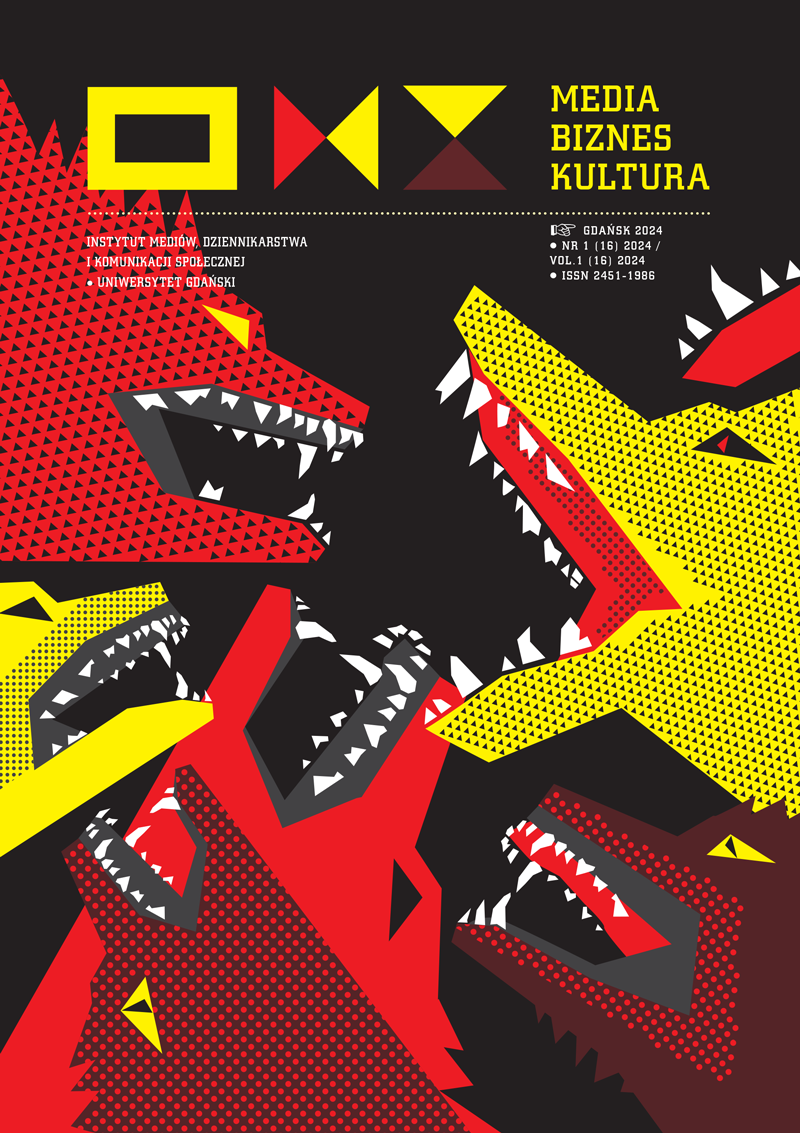Communicating aggression and the destruction of discursive rationality
Keywords:
communicating aggression, discursive rationality, idea of consensus, gamedial communication, co-responsibilityAbstract
The main thesis of the article – constructed from the standpoint of transcendental-pragmatic communicating philosophy – is to indicate aggression present in today’s media space as the most significant threat to discursive rationality. Elaborating on this thesis required, on the one hand, understanding how previous theories conceptualized aggression, and on the other hand, explaining the specificity of discursive rationality. On this basis, it was possible to propose a different approach to the problem of aggression, which, in subsequent steps, allowed the recognition that (1) due to communicative aggression present in the specific media space shaped by the latest media, the fundamental tendency toward consensus in communicative processes undergoes destruction precisely because of the specificity of this “megamedial” space. This (2) consequently prevents the maintenance of the discursive nature of human rationality, and thus (3) poses a fundamental threat to the existence of the communication community. In a “positive plan”, these diagnoses ultimately point to the principle of co-responsibility and the normative ethical framework based on it as determinants of social practices safeguarding the idea of consensus.
Downloads
References
Apel K.-O., Die Vernunftfunktion der kommunikativen Rationalität. Zum Verhältnis von konsensualkommunikativer Rationalität, strategischer Rationalität und Systemrationalität [w:] Die eine Vernunft und die vielen Rationalitäten, red. Karl-Otto Apel, Matthias Kettner, Suhrkamp, Frankfurt a/M 1996, s. 17–41.
Apel K.-O., Logosauszeichnung der menschlichen Sprache. Die philosophische Tragweite der Sprachtheorie [w:] Perspektiven auf Sprache. Interdisziplinäre Beiträge zum Gedenken an Hans Hörmann, red. Hans-Georg Bosshard, De Gruyter, Berlin/New York 1986, s. 45–87.
Apel K.-O., Transformation der Philosophie, Suhrkamp, Frankfurt am Main 1973. Bandura A., Aggression: A social learning analysis, Prentice-Hall, Edgewood Cliffs, New Jersey 1973. Baron-Cohen S., Teoria zła. O empatii i genezie okrucieństwa, przeł. A. Nowak, Smak Słowa, Sopot 2014.
Bauer J., Granica bólu. O źródłach agresji i przemocy, przeł. M. Skalska, Dobra Literatura, Gdańsk 2015.
Castells, M., Communication Power, OUP Oxford, California 2009.
Dollard J., Leonard D., Neal M., Orval H.M., Sears R., Frustration and aggression, Yale University Press, New Haven 1939.
Frankl V.E., Człowiek w poszukiwaniu sensu życia, przeł. A. Wolnicka, Wydawnictwo Czarna Owca, Warszawa 2022.
Fromm E., Anatomia ludzkiej destrukcyjności, przeł. J. Karłowski, Rebis, Poznań 2024.
Jenkins H., Kultura konwergencji. Zderzenie starych i nowych mediów, przeł. M. Bernatowicz, M. Filiciak, Wydawnictwa Akademickie i Profesjonalne, Kraków 2007.
Kuhlmann W., Reflexive Letztbegründung. Untersuchungen zur Transzendentalpragmatik, Verlag Karl Alber, Freiburg/München 1985.
Levinson P., Nowe nowe media, przeł. M. Zawadzka, Wydawnictwo WAM, Kraków 2010.
Pyżalski J., Agresja elektroniczna i cyberbullying jako nowe ryzykowne zachowania młodzieży, Oficyna Wydawnicza „Impuls”, Kraków 2012.
Pyżalski J., From cyberbullying to electronic aggression: Typology of the phenomenon, „Emotional and Behavioural Difficulties”, nr 17(3–4), s. 305–317.
Siebert F.S., Peterson Th., Schramm W., Four Theories of the Press. The authoritarian, libertarian, social responsibility, and Soviet communist concepts of what the press should be and do, University of Illinois Press, Urbana 1956.
Sierocka B., Communicating Aggression in a Megamedia World, Routledge, New York 2021. Sztompka P., Zaufanie: fundament społeczeństwa, Znak, Kraków 2007.
Tomasello M., Dlaczego współpracujemy?, przeł. Ł. Kwiatek, Copernicus Center Press, Kraków 2016.
Tomasello M., Kulturowe źródła ludzkiego poznawania, przeł. J. Rączkiewicz, Wydawnictwo Naukowe PWN, Warszawa 2005.

 Academic Scientific Journals
Academic Scientific Journals




